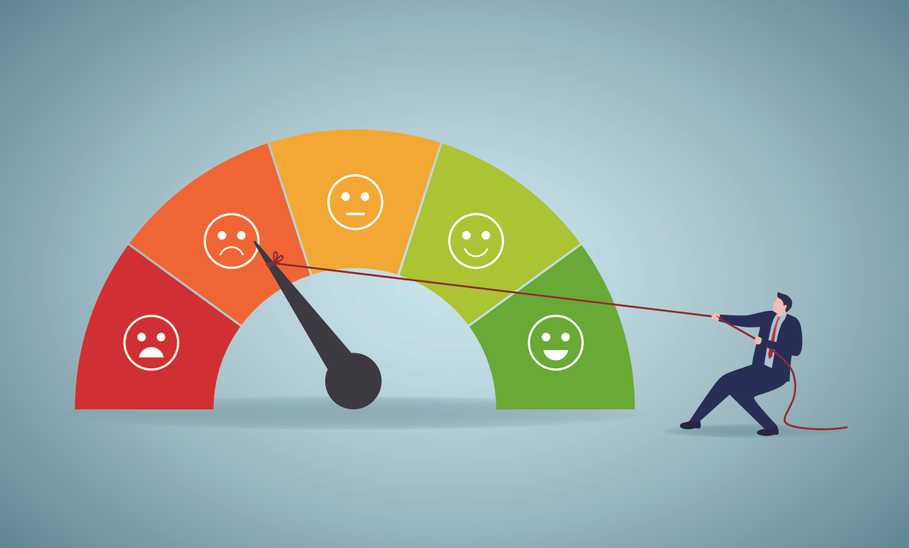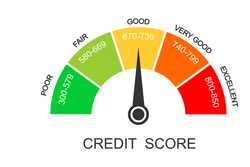How Long Does It Take (and Tips) to Improve Your Credit Score?

Our evaluations and opinions are not influenced by our advertising relationships, but we may earn a commission from our partners’ links. This content is created by TIME Stamped, under TIME’s direction and produced in accordance with TIME’s editorial guidelines and overseen by TIME’s editorial staff. Learn more about it.
Your credit score is constantly changing, and for most people, the ultimate goal is to get their credit score to go up. So how long does it take for your credit score to rise?
The length of time it takes to increase your credit score can vary depending on your situation. However, you could see an improvement in as little as 30 to 45 days depending on specific action steps.
How long it takes to improve your credit score can also depend heavily on the type of event that caused your credit score to drop.
A missed payment or an account sent to collections for non-payment can easily result in a 60 to 100 point drop in your credit score. How long it takes your score to recover can vary depending on your starting credit score and actual event that led to the decrease.
Here is some general information on the average credit score recovery time. These estimates are based on a fair credit score of around 680 to 720.
| Event | Average credit score recovery time |
|---|---|
Missed or defaulted payment | 18 months |
High credit utilization | 3 months |
Hard credit inquiry | 3 months |
Late mortgage payment (30-90 days) | 9 months |
Foreclosure | 3 years |
Bankruptcy | 6+ years |
Payment history is the most important factor that makes up your credit score. When you miss a payment, you run the risk of receiving costly late fees and lowering your credit score.
Some creditors have a grace period allowing you to pay late while others may report your missed payment sooner.
If you’re struggling to make a payment on an account, always reach out to your creditor to see if they have any relief options for you such as deferment or a different payment plan.
A common rule of thumb is to keep your overall credit utilization below 30%. If you do end up with a higher credit utilization or even max out your credit cards, you can always work on paying down the balances and see your credit score recover in just a few months.
Hard credit inquiries can stay on your credit report for up to two years. However, the negative impact on your credit score can be reduced in just a few months.
Also, if you’re shopping around for a loan such as a car loan or home, multiple (similar) credit inquiries accumulated during the same timeframe will be counted as just one credit inquiry.
Once a payment is 30 days past due, lenders can report it to the credit bureaus. Falling behind on mortgage payments is a slippery slope that can actually increase the cost of your loan over time or even lead to foreclosure.
It will take longer for your credit score to recover after a late mortgage payment, but it’s not impossible to boost your score if you can commit to making on-time payments for the next several months.
It takes a longer time to recover your credit score after foreclosure and this legal process can start after 90 days of missed payments. The higher your credit score is, the more you’ll see a sharp decrease and it can take several years to rebuild your credit afterward.
If you file for bankruptcy, you can expect this record to stay on your credit report for up to seven to 10 years. However, you can start to see an increase in your credit score after a few years of positive payment history and other healthy financial habits that can impact your score.
Even if you’ve filed for bankruptcy before, it doesn’t mean you can’t get approved for new credit or get a mortgage in the future.
There are several credit scoring models which are used to generate your credit score. The average person has several credit scores based on the credit scoring model as well as how each of the three major credit bureaus reports their score.
FICO is one of the most common credit scoring models. It was established in 1989 by the Fair Isaac Corporation. There are several different FICO score versions ranging from FICO 2 to FICO 9, and many creditors use FICO credit scores.
FICO credit scores can range from 300 to 850.
VantageScore is another credit scoring model and competitor to the FICO score. VantageScore was developed in 2006 by the three major credit bureaus, TransUnion, Experian, and Equifax.
Just like FICO scores, VantageScore also provides credit scores for auto loans, banking, and personal loans.
VantageScore credit scores also range from 300 to 850.
Several factors impact how your credit score is determined. Knowing these factors can help you improve your score and maintain good credit.
Based on the most important factors that impact your credit score, consider trying some of these tips to help boost your credit.
Your credit score will change over time and depending on certain financial events. The good news is that even if your credit score drops, it can increase with time. The time it takes to improve your credit score will vary depending on your starting point and the cause of your credit score decrease.
Also, taking specific financial actions such as paying down balances, limiting hard inquiries, and making on-time payments can help speed up the time it takes to improve your score.
There is no set maximum amount that your credit score can increase by in one month. It all depends on your unique situation and the specific actions you’re taking to improve your credit. Realistically, you probably won’t see your credit score increase by more than 10 points in a month.
Still, a timely event such as a few hard inquiries falling off your credit report or a credit utilization ratio (for example, by paying off your credit cards) can lead to a significant increase in your credit score in a month. Remember, building credit takes time and credit scoring models are based on your activity and account history over time.
Simply put, one month of positive on-time payment history is great, but six to 12 months of positive payment history is better and will have a greater impact.
A 650 credit score is considered good but not great. A score above 700 is considered excellent and of course, the closer your score is to 850, the better.
There are several credit card options to help you rebuild your score. You may want to start with a secured credit card since they are easier to get approved for. One option is the Capital One Platinum Credit Card and another is the Credit One Bank Platinum Visa card.
The OpenSky® Secured Visa® Credit Card* is also a good option for anyone looking to rebuild their credit after bankruptcy.
*Limited Time Offer: $51 funding voucher applied for all new accounts. Get a $200 credit line for $149. Click the "OpenSky® Secured Visa® Credit Card" link to see additional terms and conditions.
The information presented here is created by TIME Stamped and overseen by TIME editorial staff. To learn more, see our About Us page.





